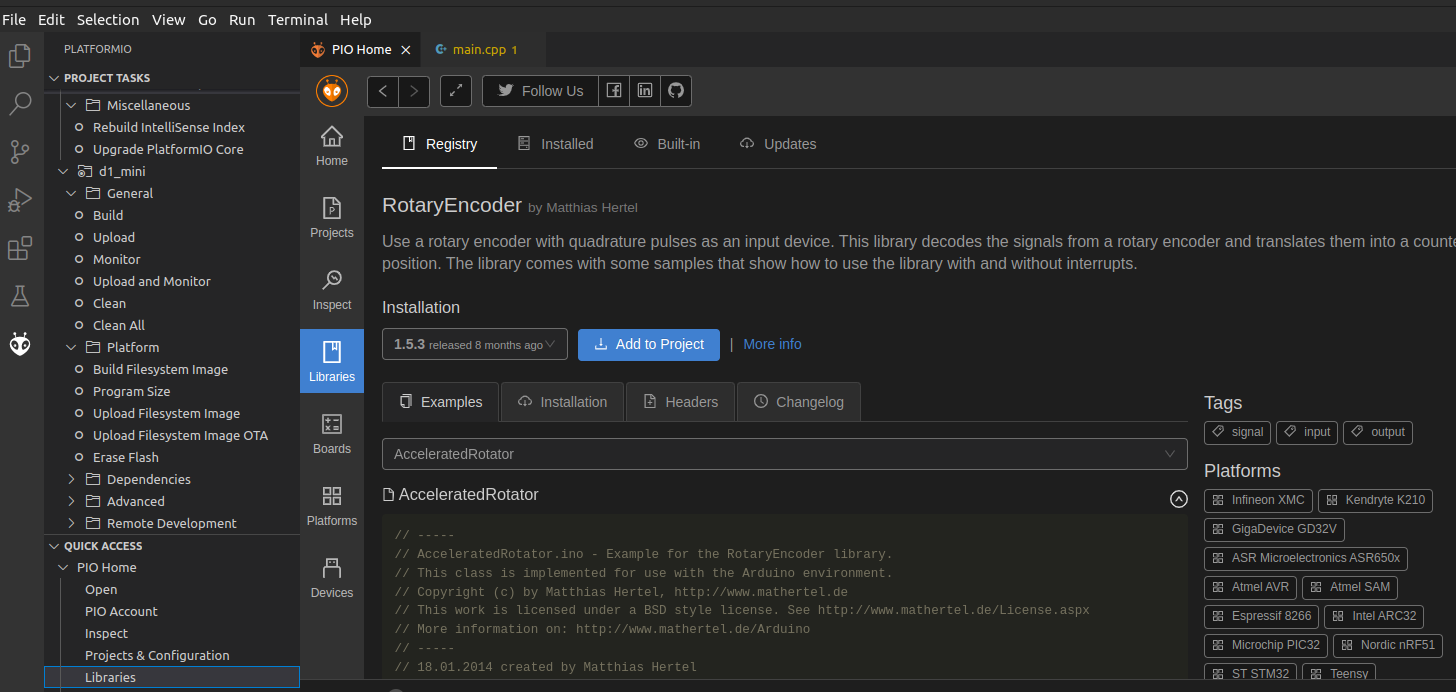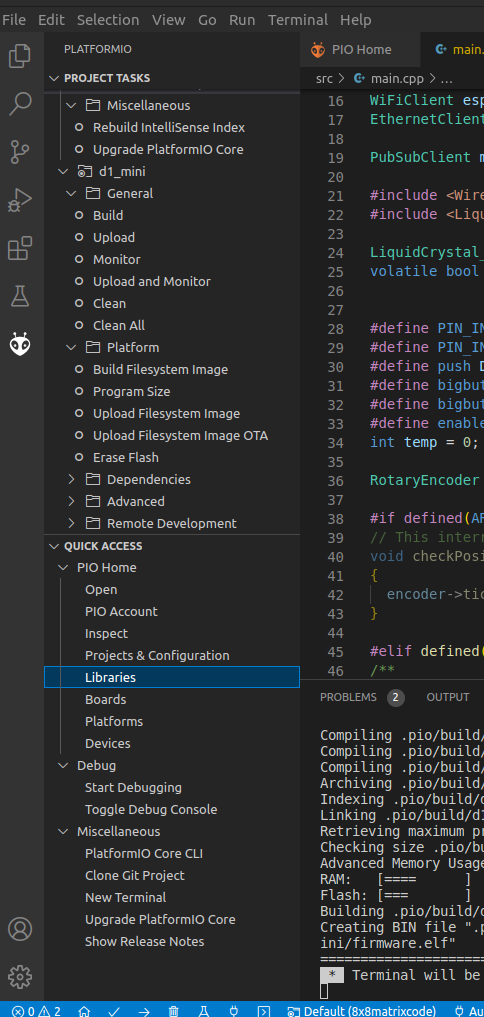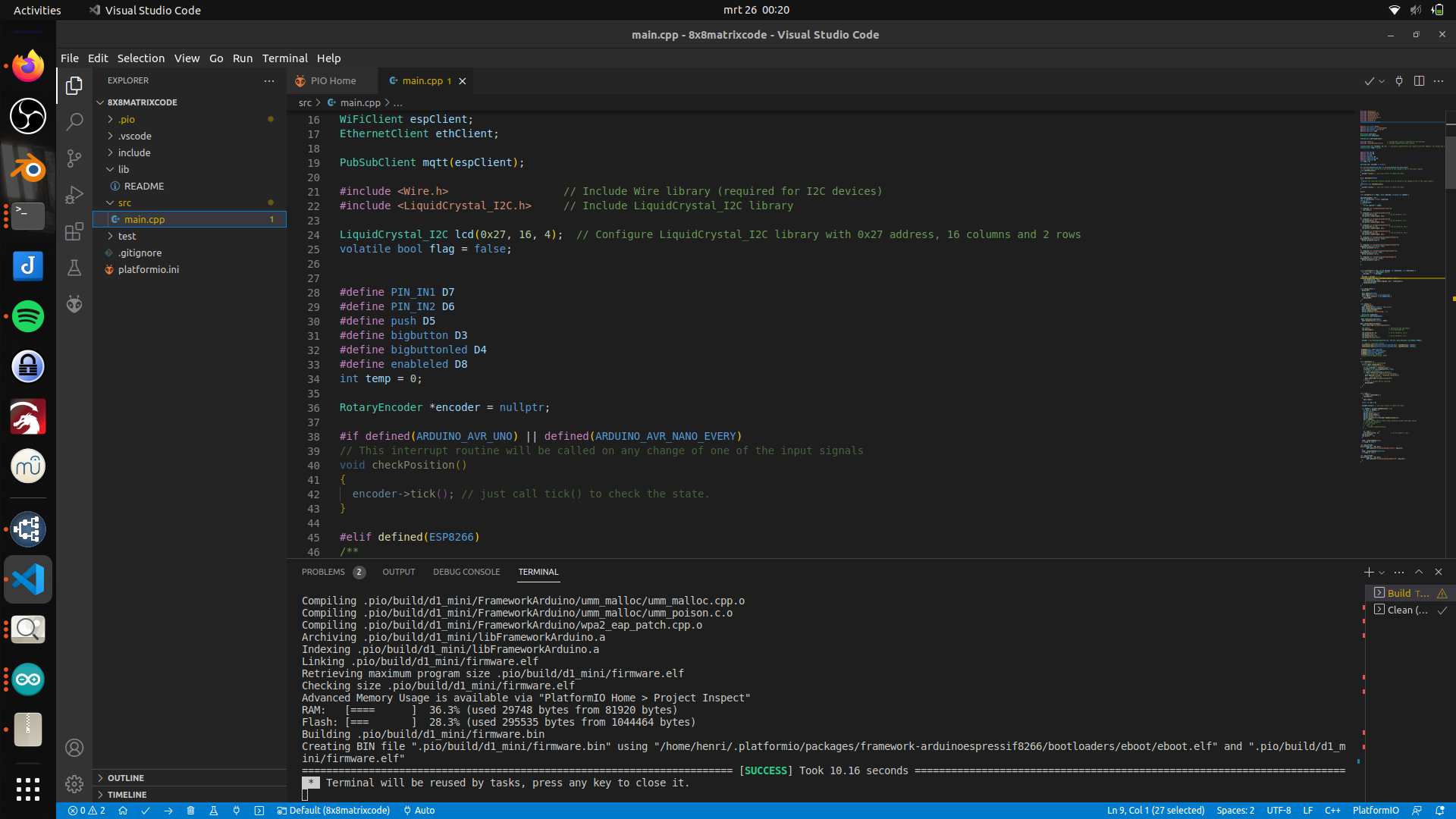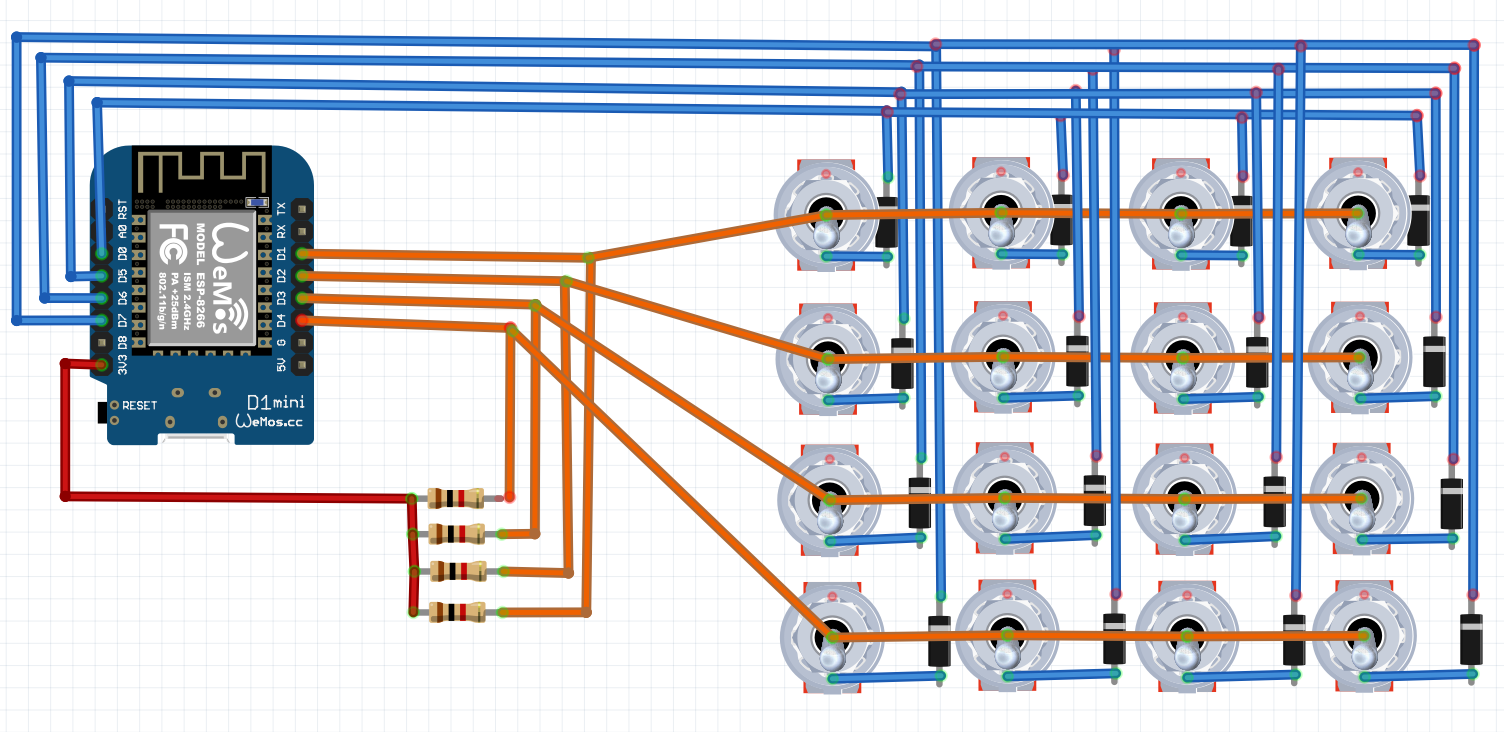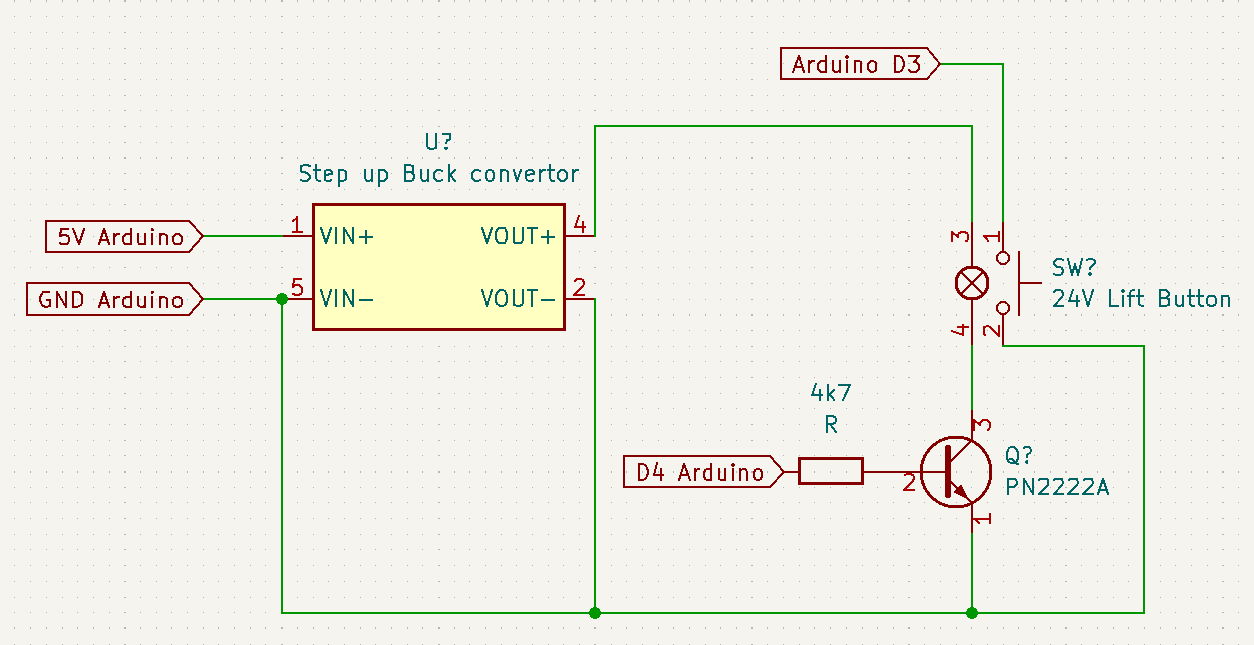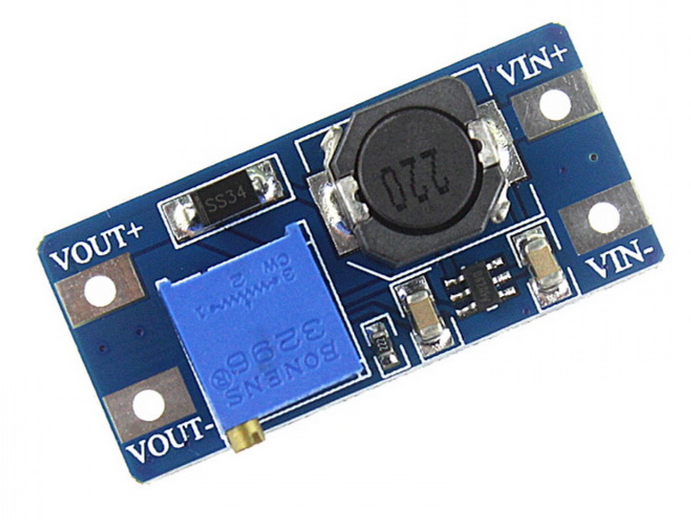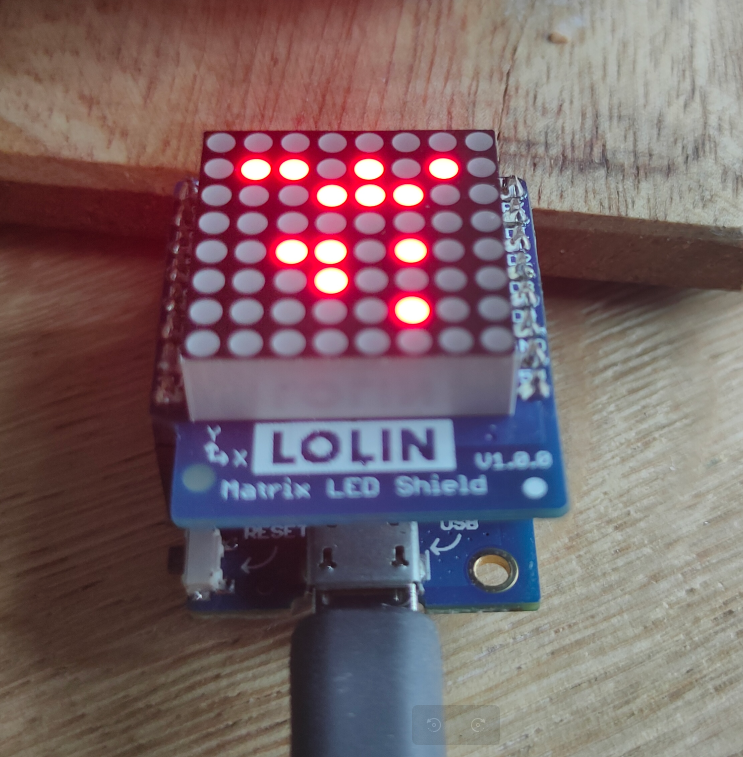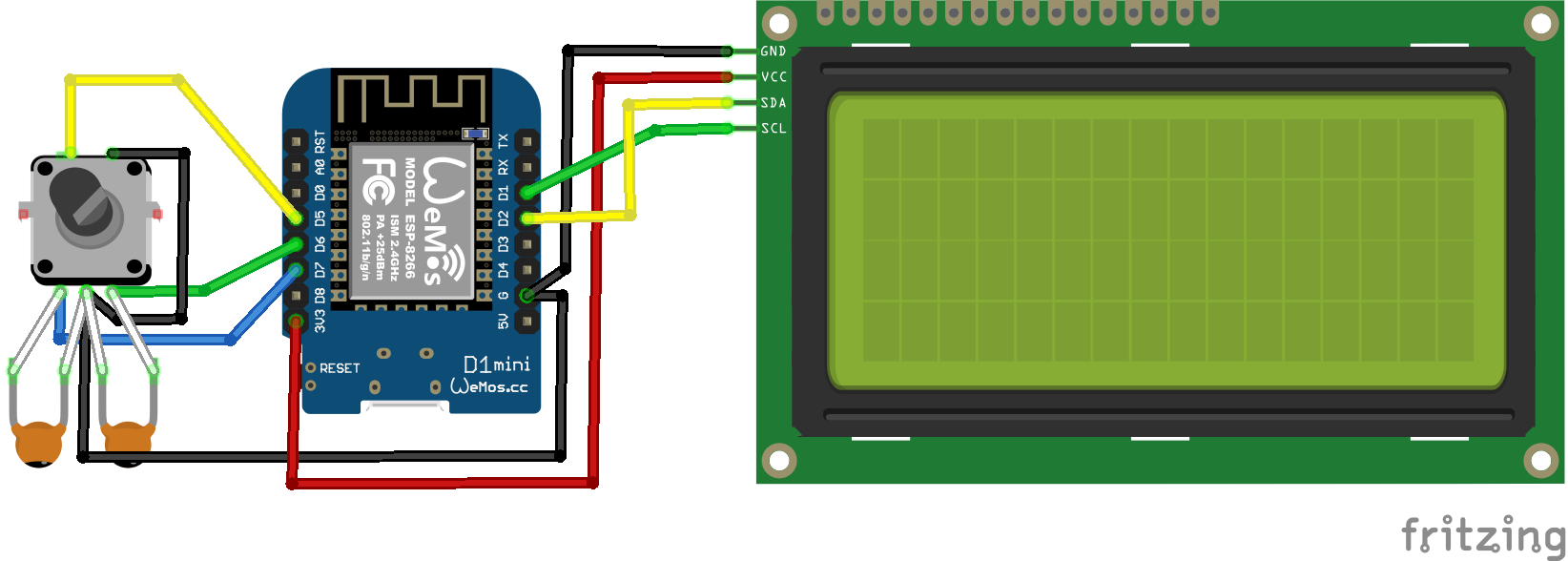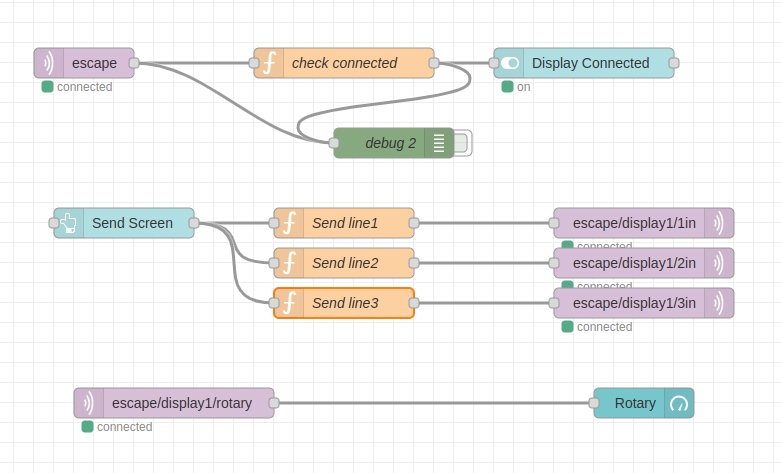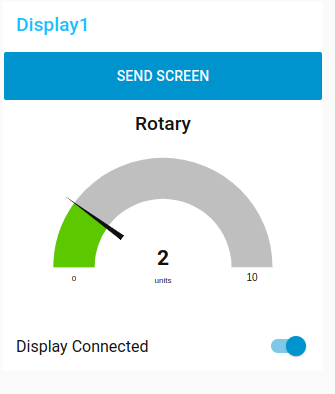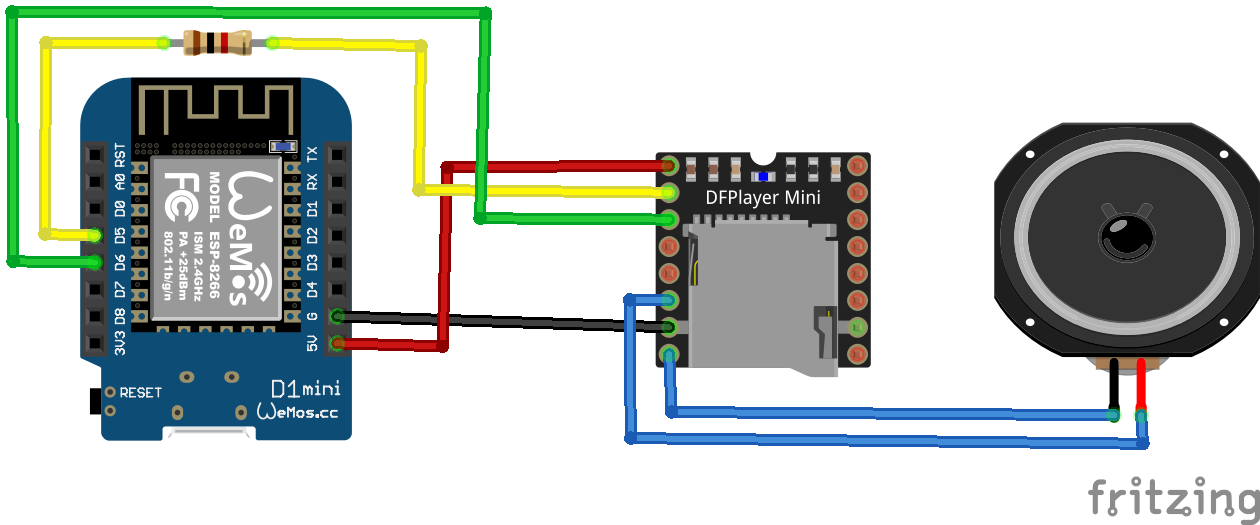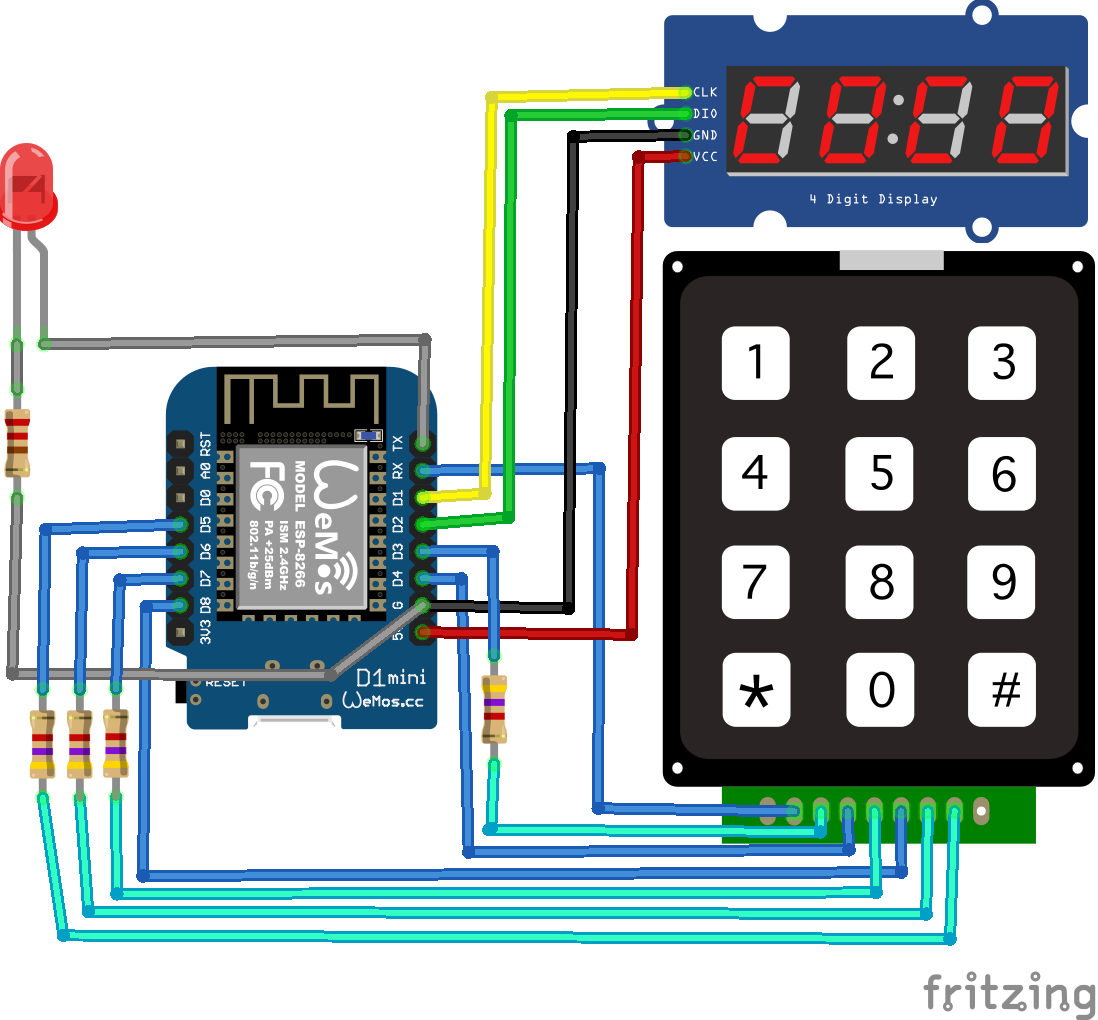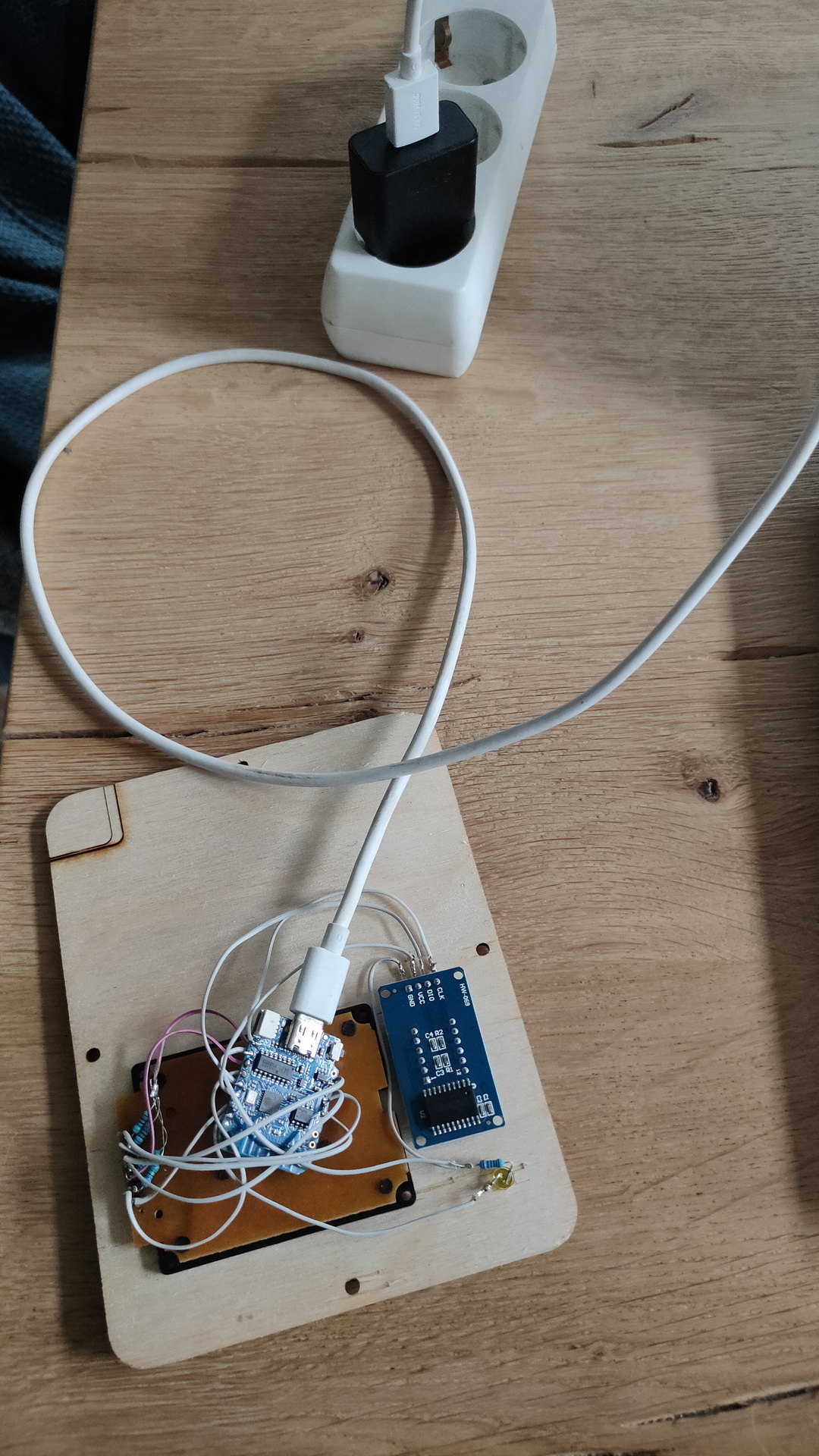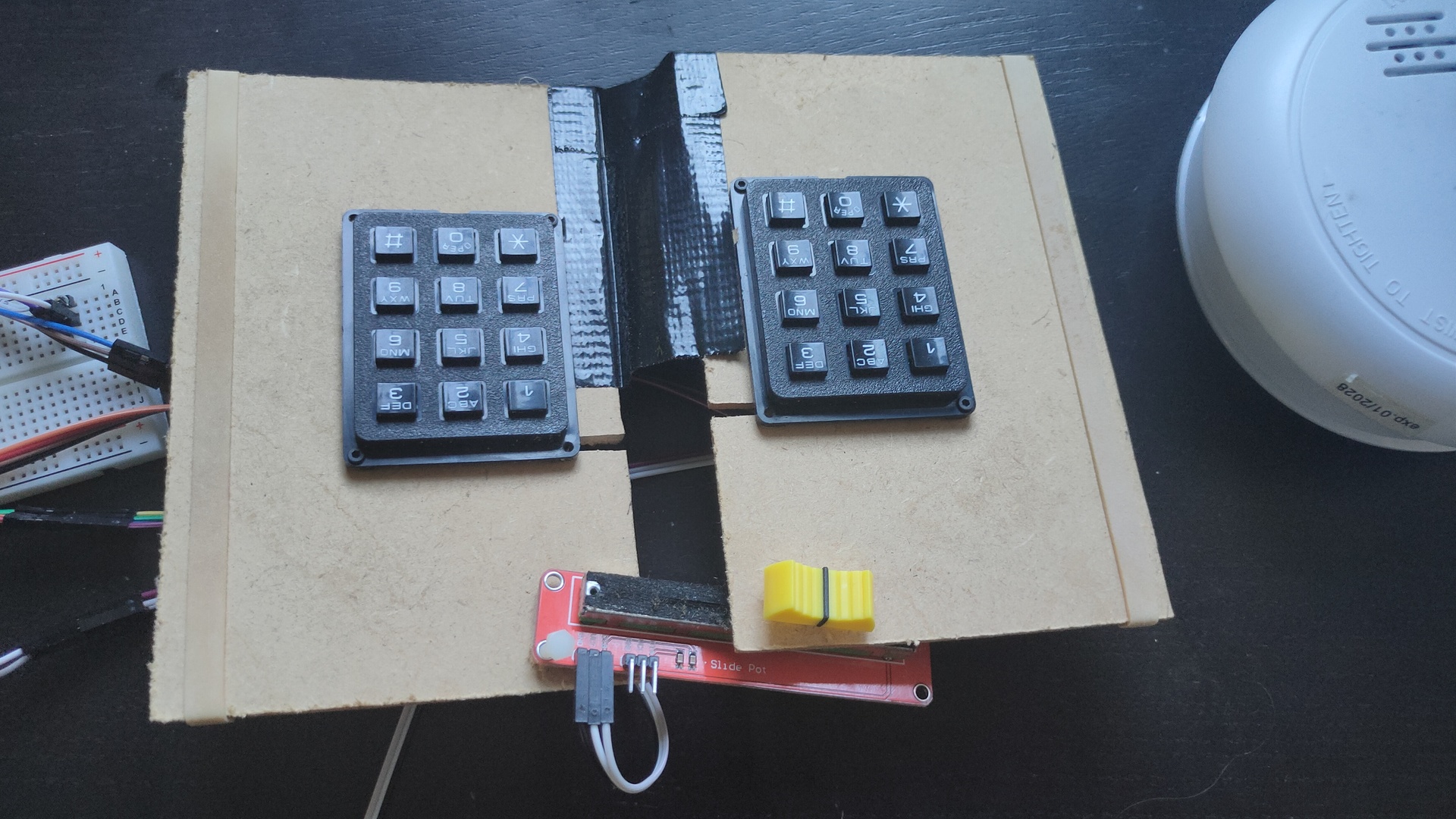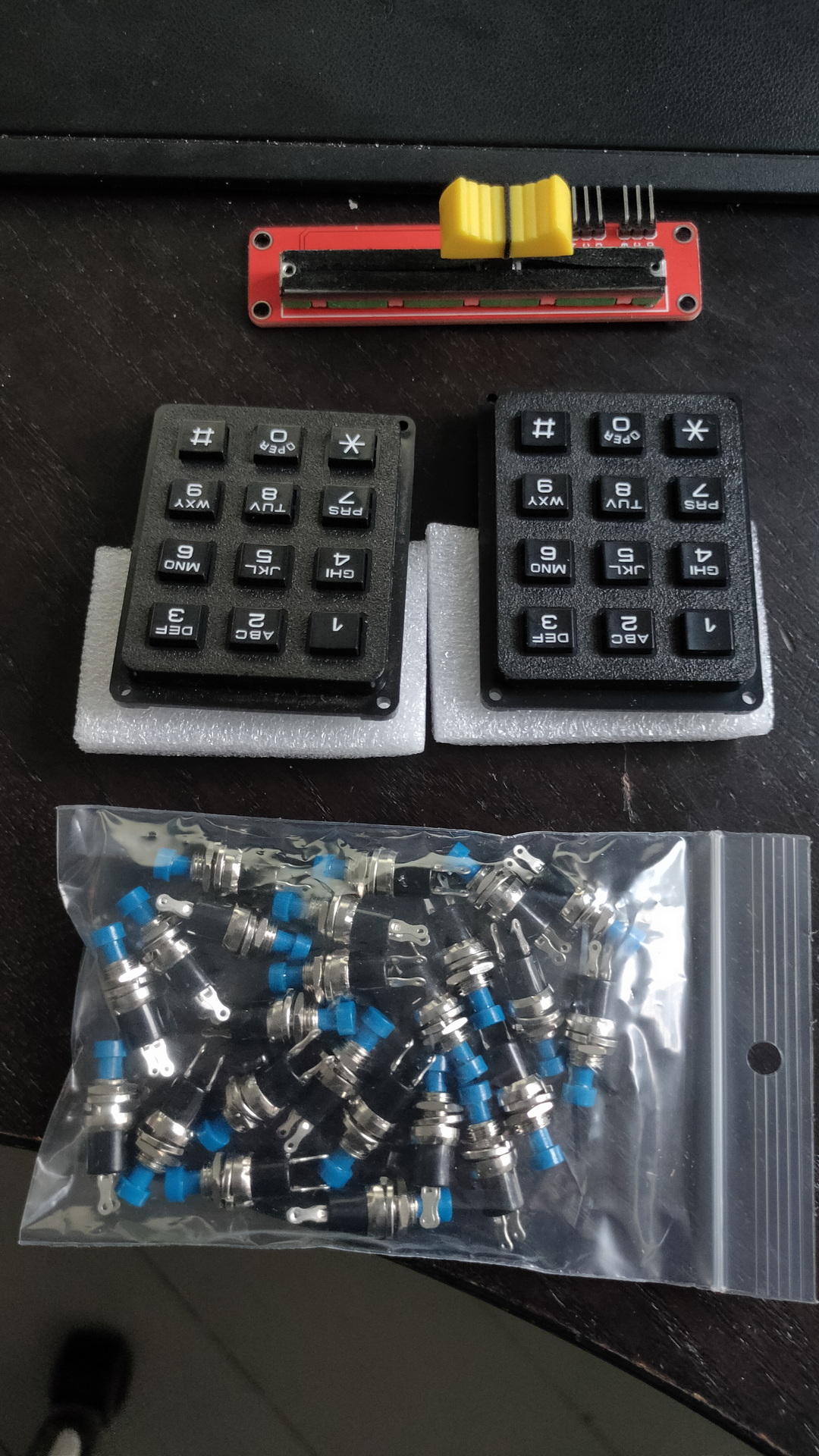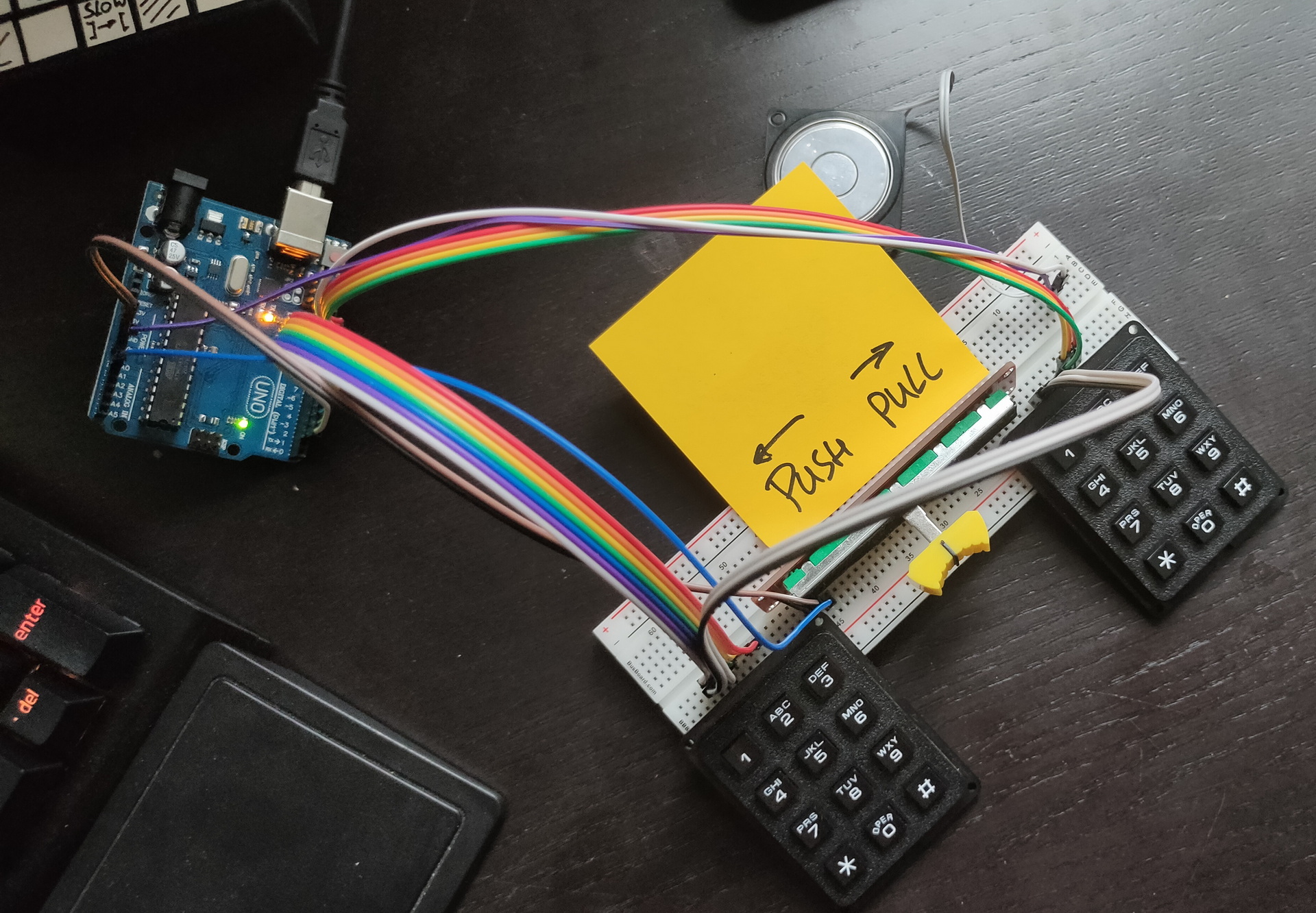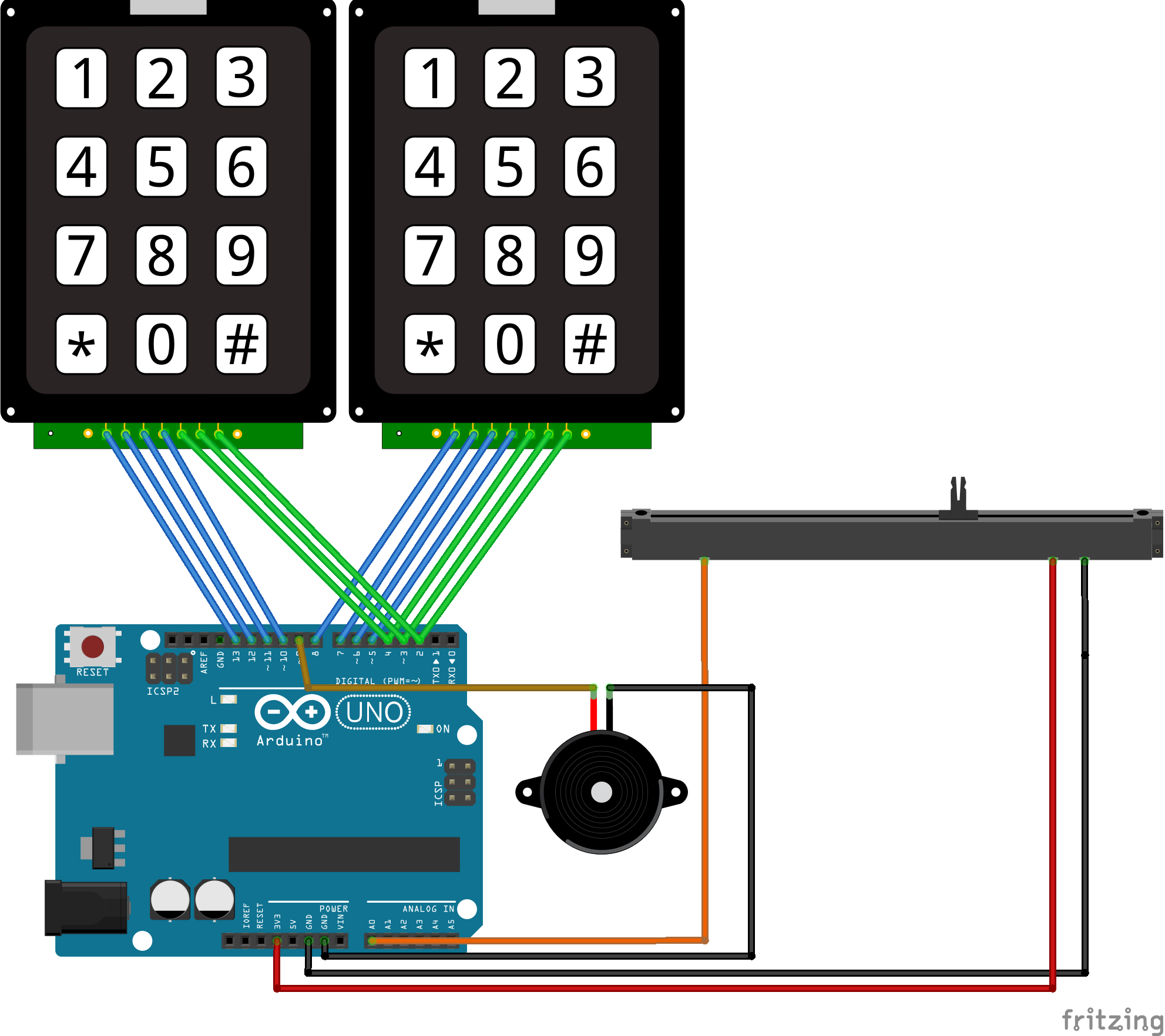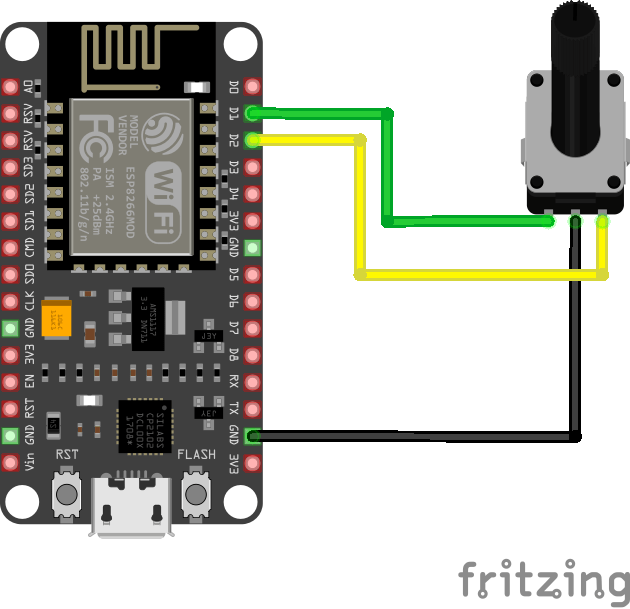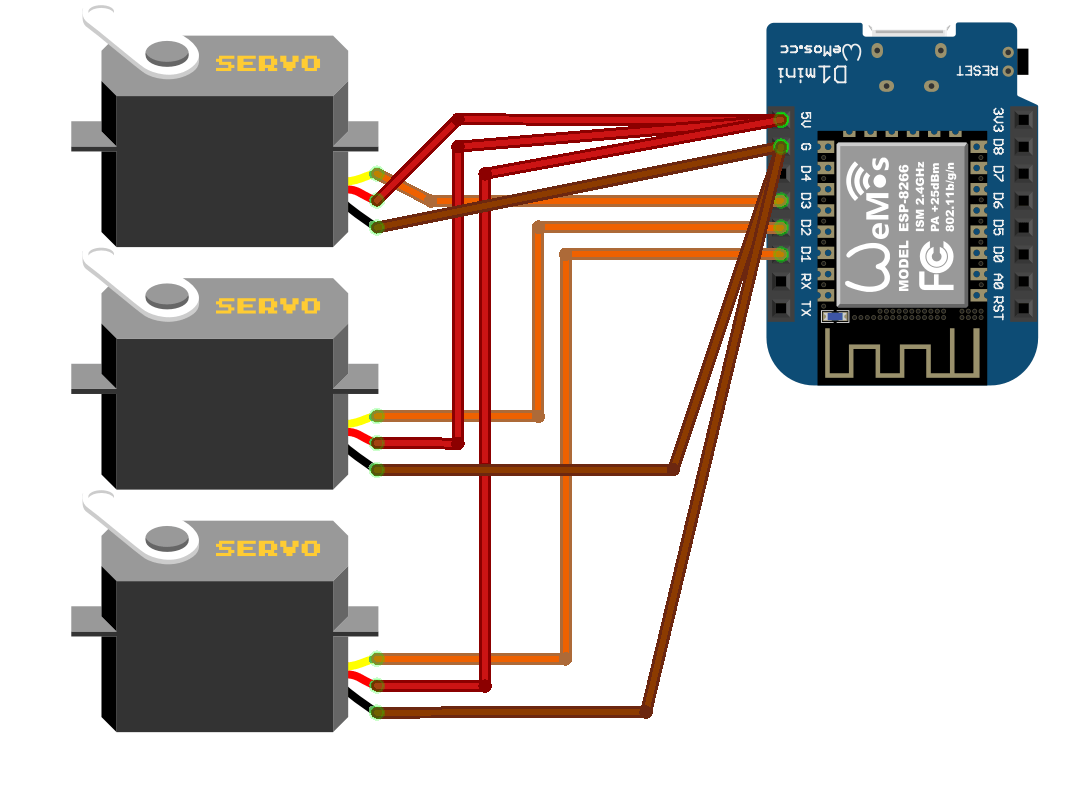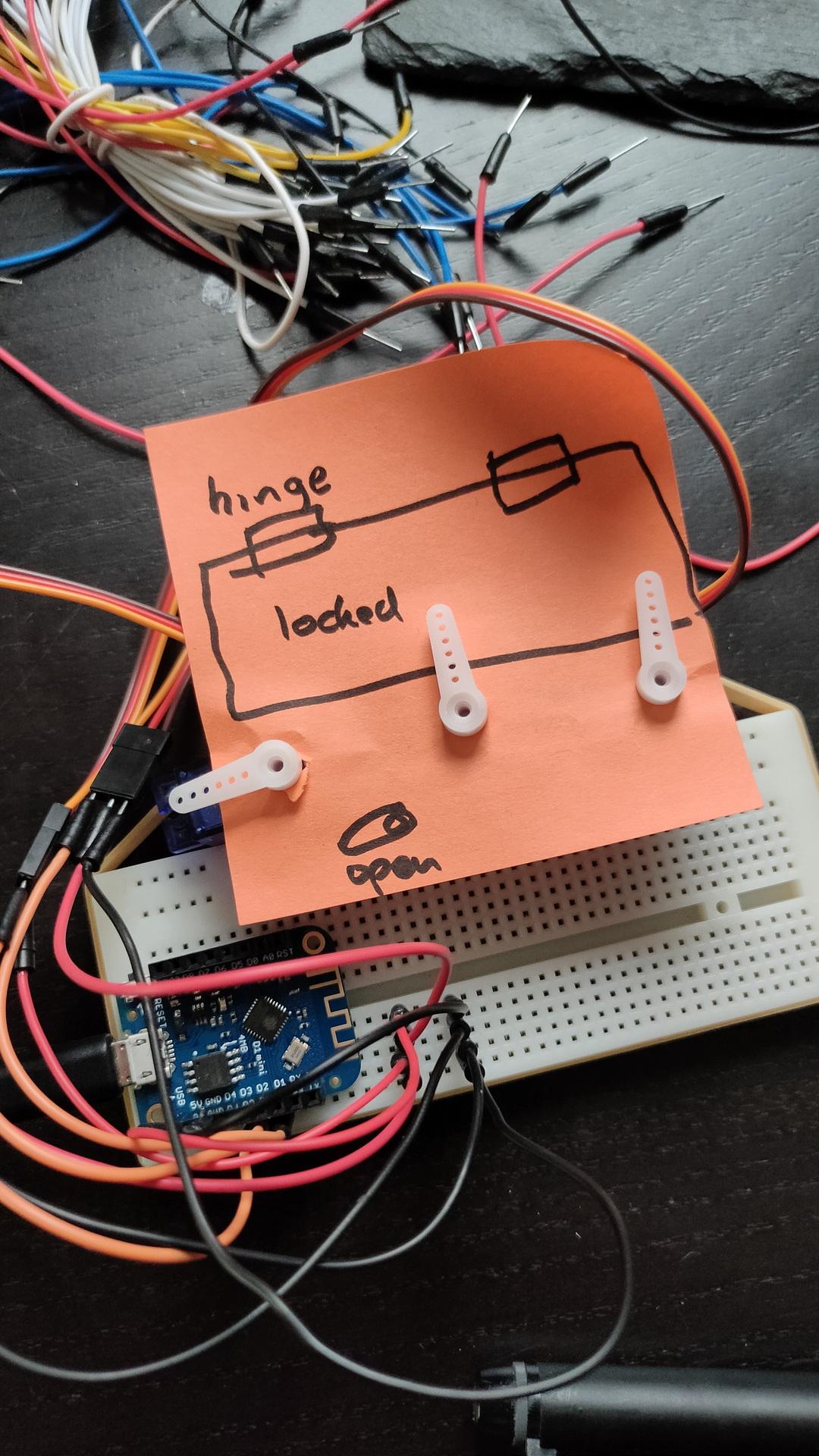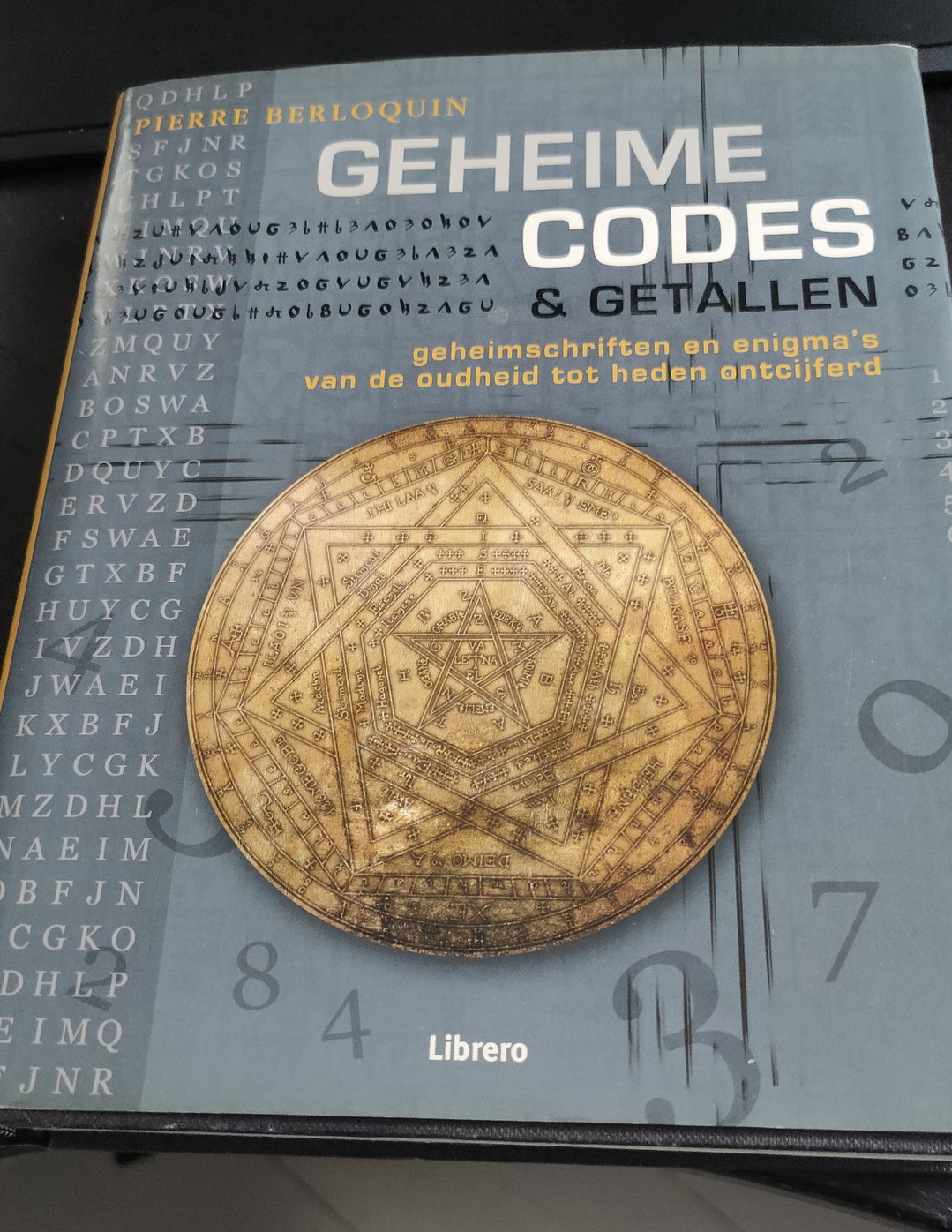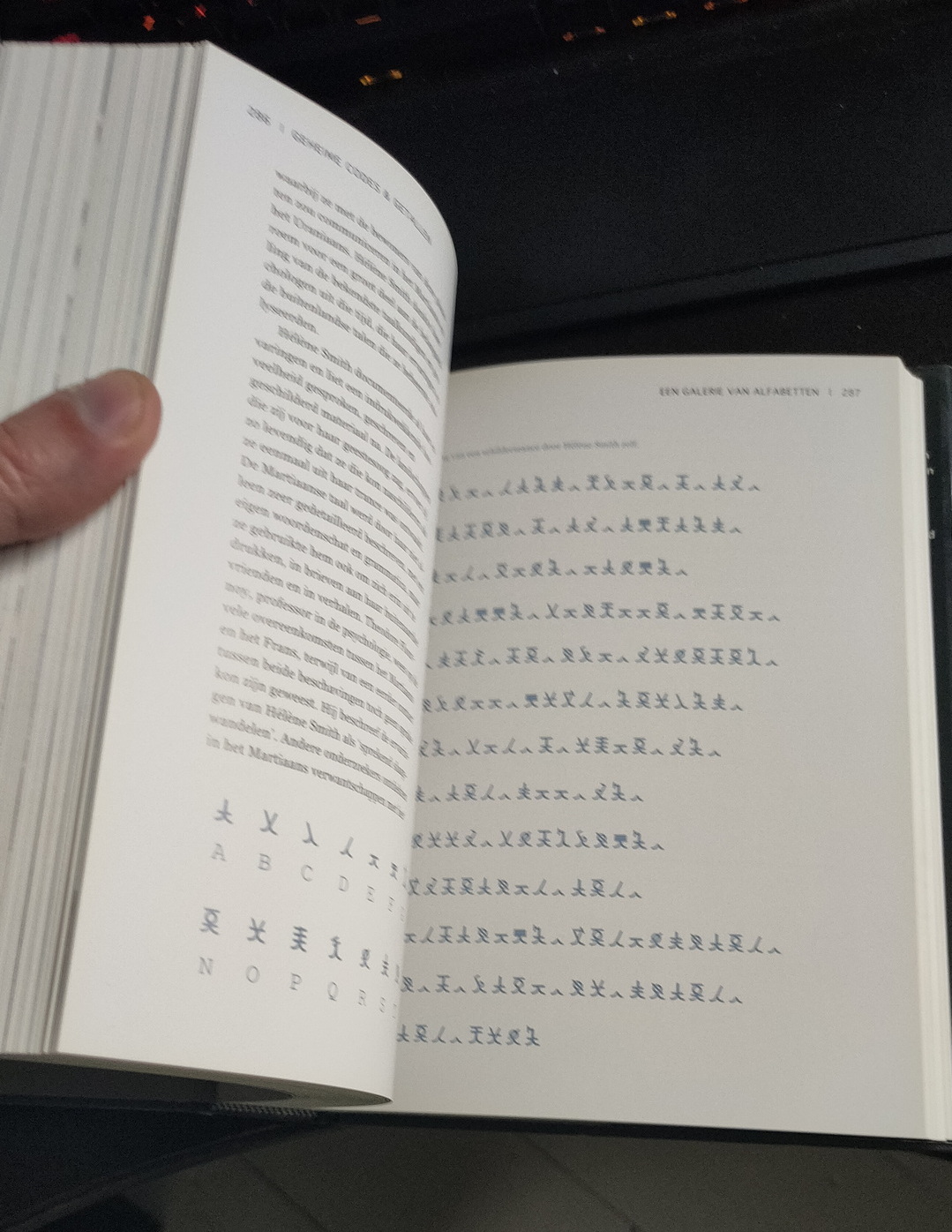I’ve build a IR Blaster in the past and tested IR with EspEasy Dev.
I’m not happy with my Harmony Hub. Not so much control as i like to have.
So now OpenMqttGateway with IR.
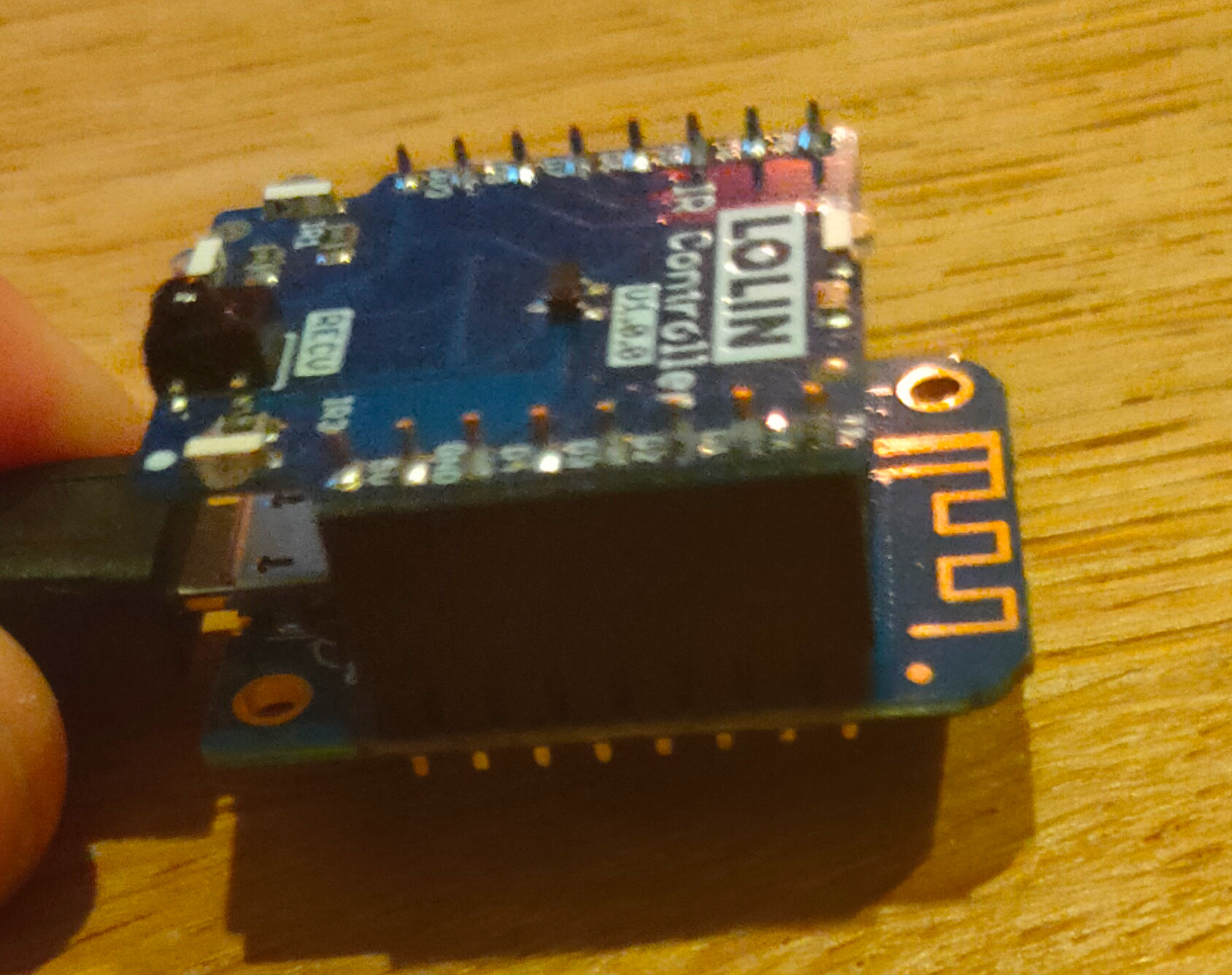
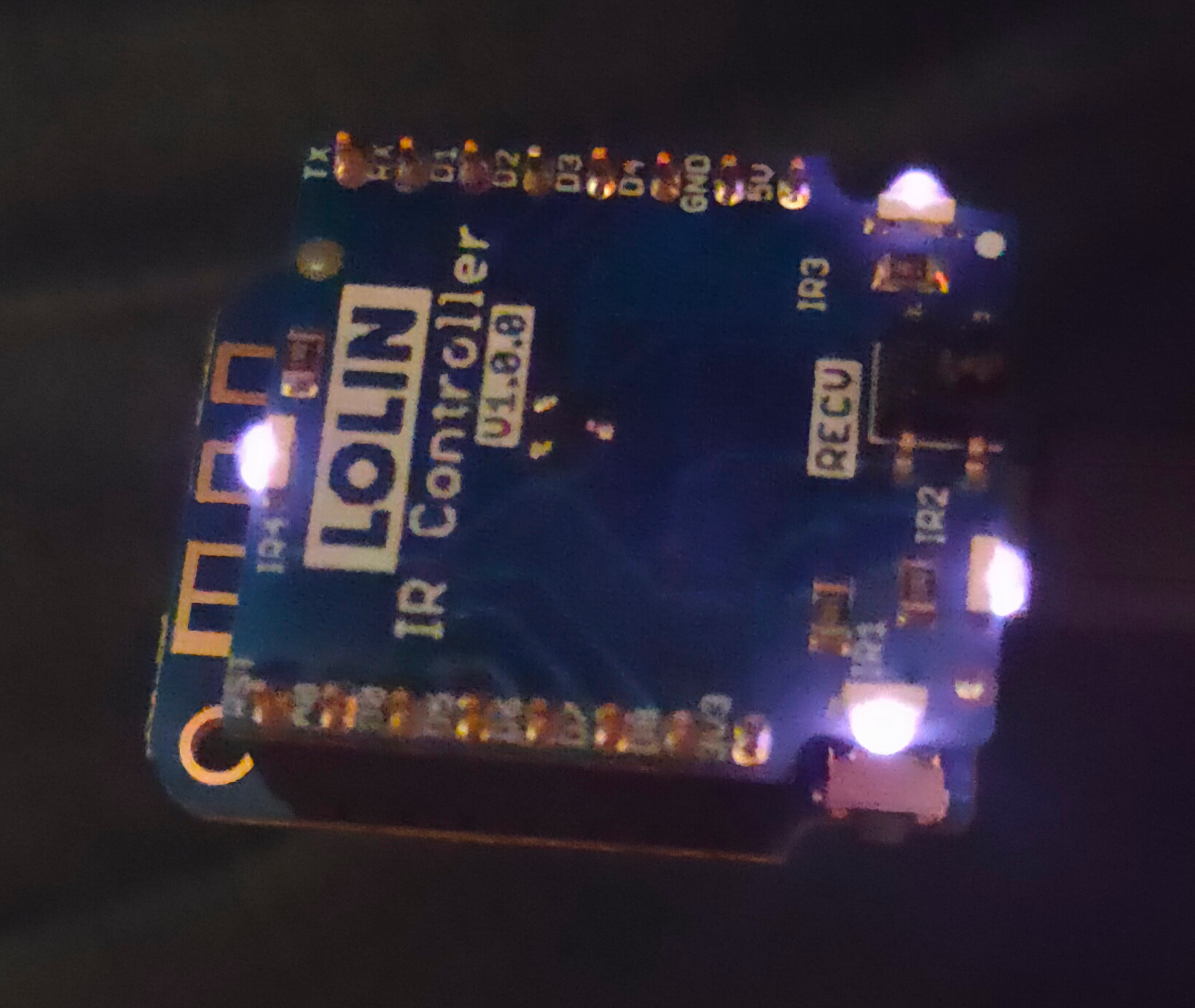
I’ve installed platformio in the past.
Not really a fan of visual-code i’m showing you the process on CLI
We can’t use the webinstaller or a precompiled binary because we need to change GPIO ports
wget https://github.com/1technophile/OpenMQTTGateway/releases/download/v1.5.0/nodemcuv2-ir-libraries.zip wget https://github.com/1technophile/OpenMQTTGateway/archive/refs/tags/v1.5.0.tar.gz tar xzvf v1.5.0.tar.gz cd v1.5.0/libs unzip ../../nodemcuv2-ir-libraries.zip cd .. edit platformio.ini remove ; from default_envs = nodemcuv2-ir vi main/config_IR.h search for LOLIN, edit and change into 0 (GPIO 0 = D3) build and upload pio run --target upload --upload-port /dev/ttyUSB0 build and upload with flash erase pio run --target erase --target upload --upload-port /dev/ttyUSB0 clean the environment when needed pio run -t clean
Now you will get a Access Point, connect and enter your Wifi network information and mqtt server.
When connected you will see the IR codes and if you installed mqtt support in home assistant it will see the mqtt topics.

I’ve copied a json output as was send by my IR remote.
Below an example using mosquitto_pub to send codes.
mosquitto_pub -t home/OpenMQTTGateway_ESP8266_IR/commands/MQTTtoIR -h mymqttserver -m '{
"value": 1270235327,
"protocol": 3,
"bits": 32,
"hex": "0x4BB640BF",
"protocol_name": "NEC",
"raw": "8908,4498,536,604,510,1700,532,604,512,604,510,1722,510,604,510,1700,534,1700,534,1702,532,606,510,1722,510,1700,534,604,512,1722,510,1722,510,604,512,604,510,1702,532,606,510,606,510,604,510,604,512,604,512,604,510,1722,510,606,510,1722,510,1702,532,1700,534,1722,512,1722,510,1700,534"
}'
platformio commands
Why use platformio?
I know Arduino IDE is easier for starters.
Platformio is far more flexible, you can make projects with their own versions of libraries.
I like CLI, easier to do version control (git)
pip install -U platformio pio upgrade pio update
Some screenshots of my visual code platformio
